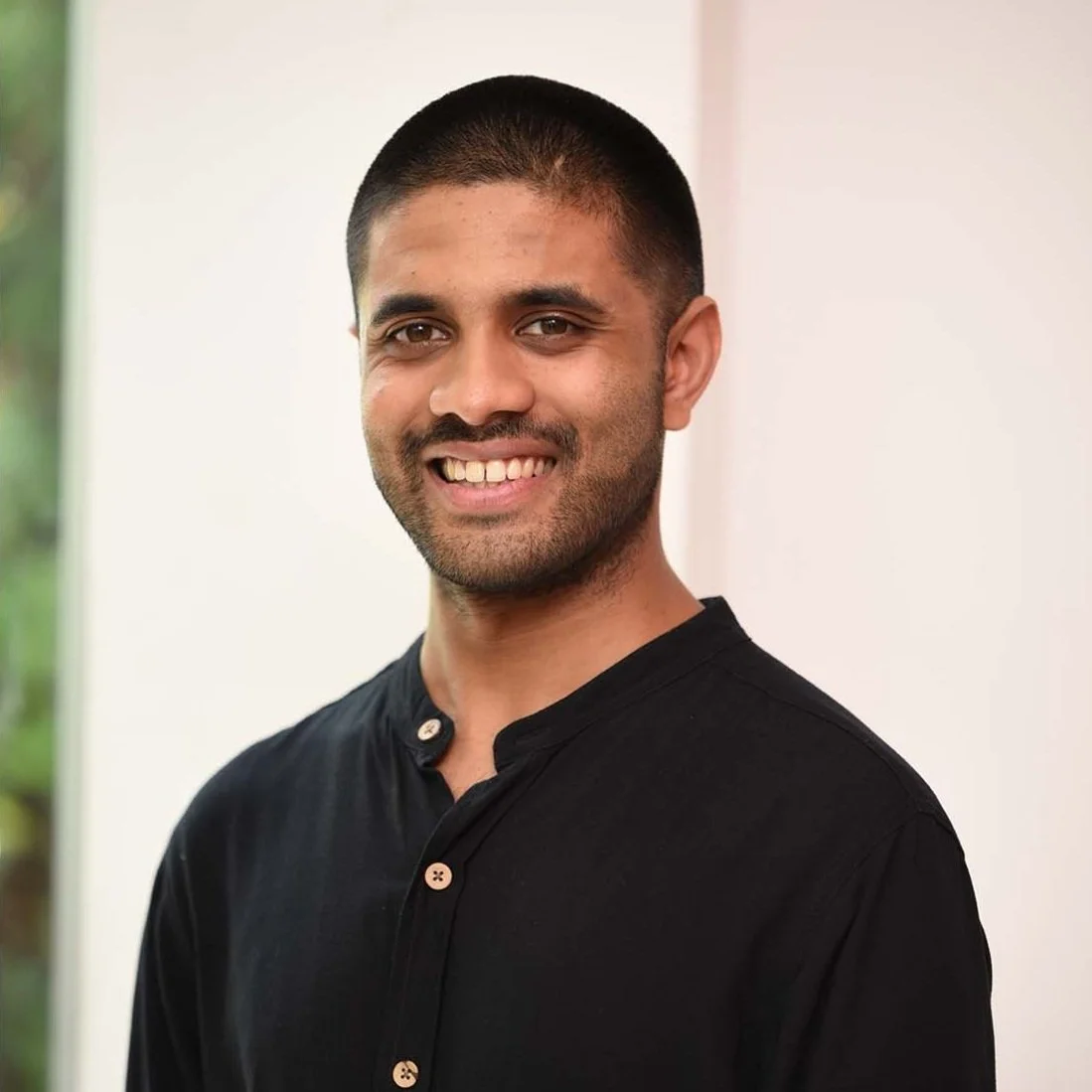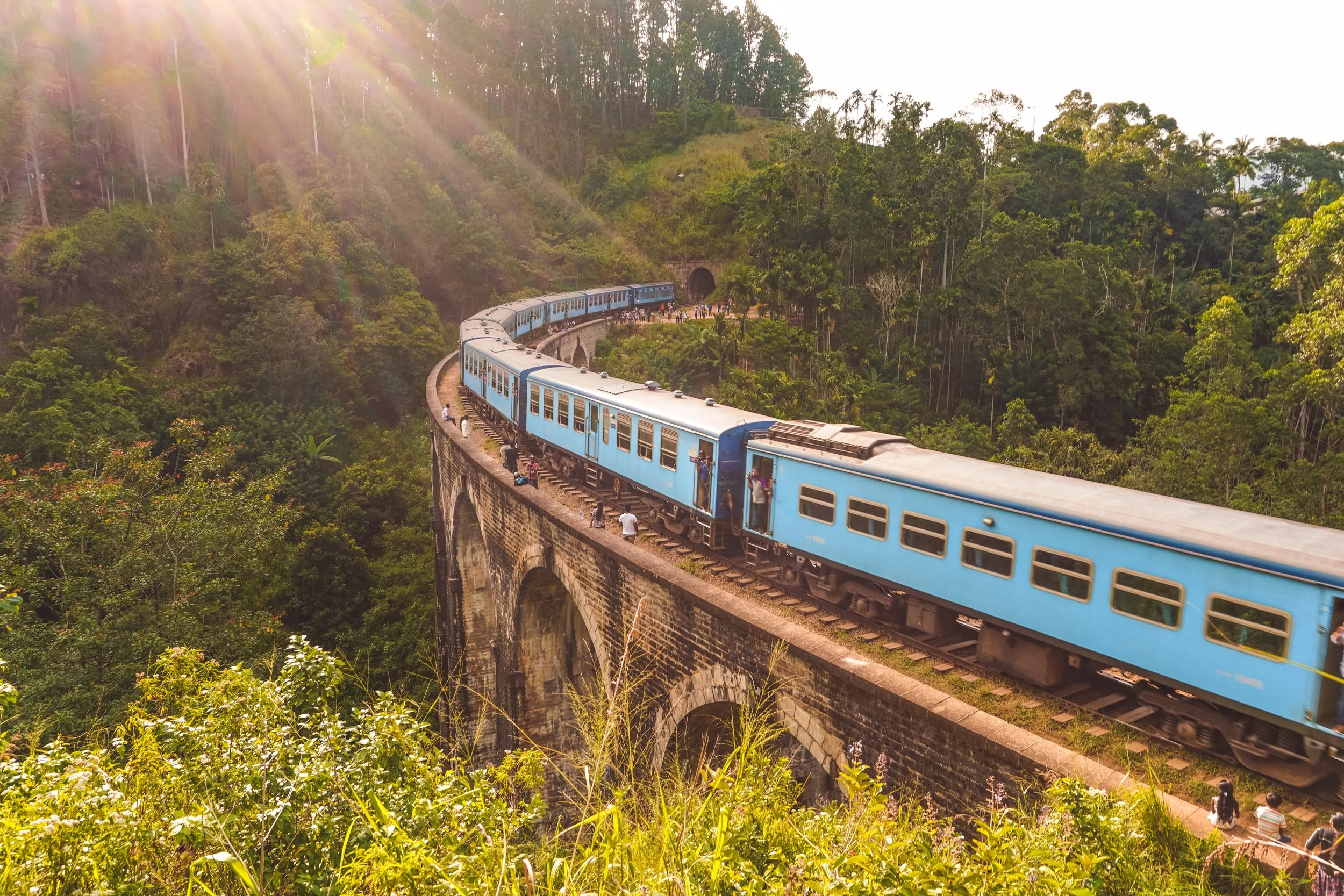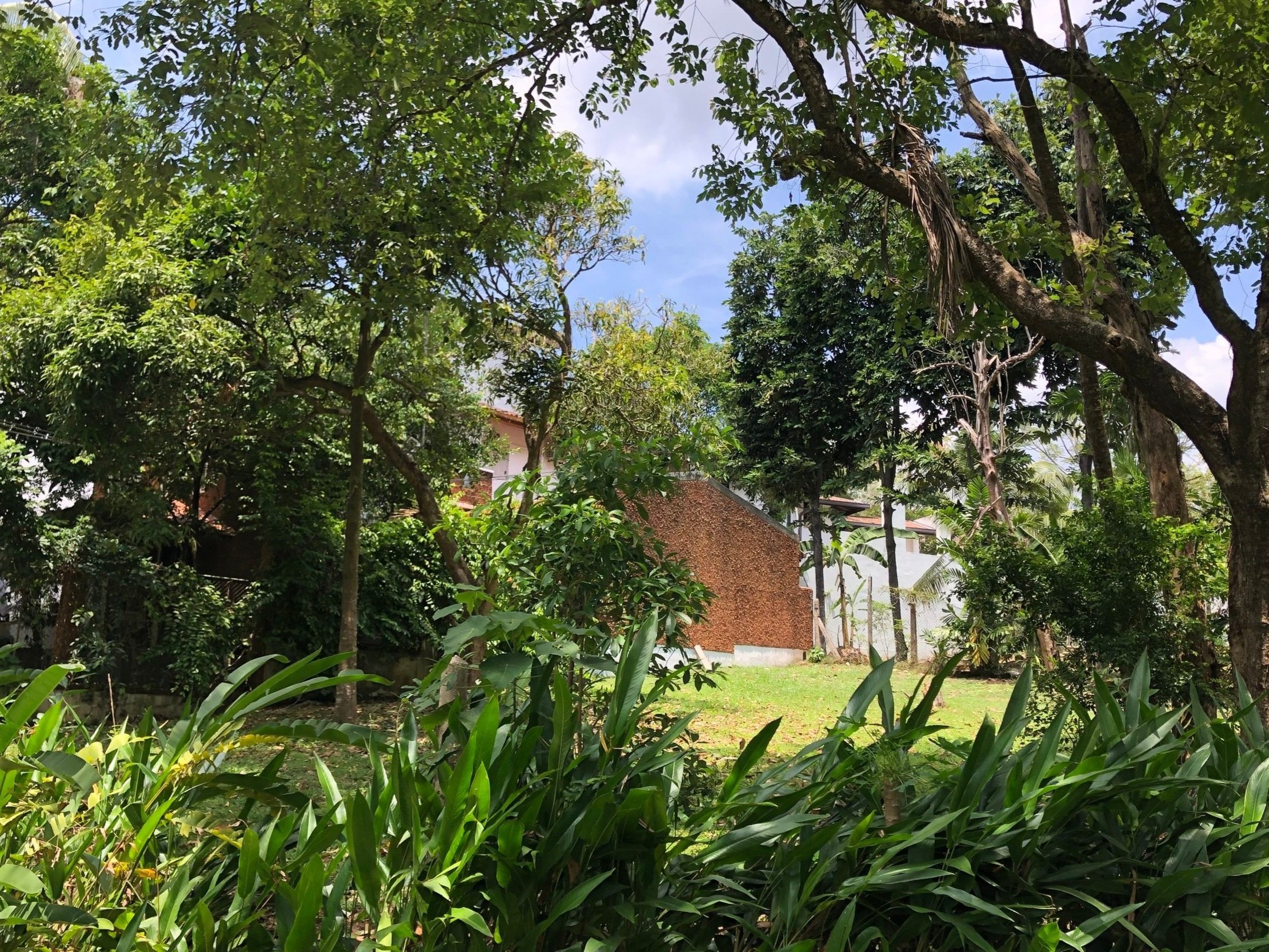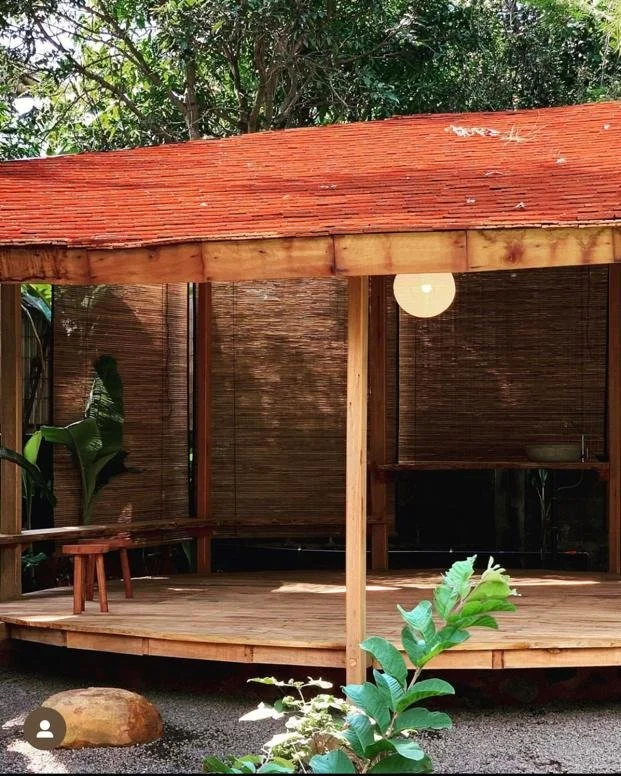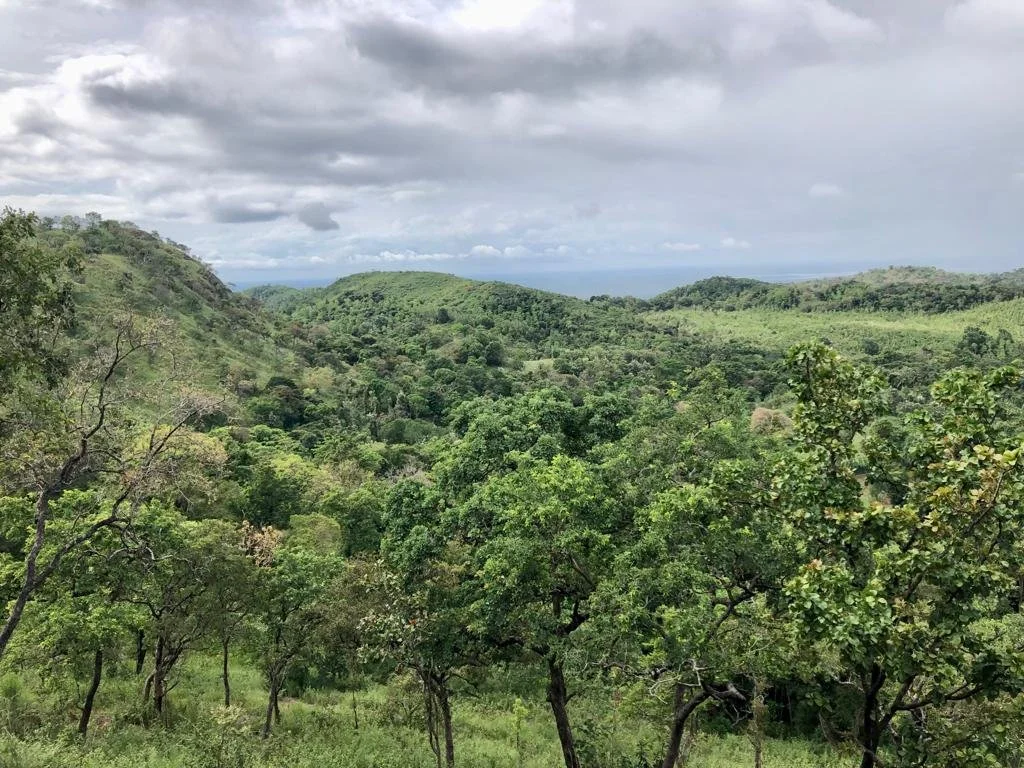Chalana Perera: Regenerating Sri Lanka’s Tourism into a Sector that Benefits All
By: Jeremy Tran
Known for its cultural charm and rich biodiversity, Sri Lanka has been on the radar of many aspiring travelers looking for an unforgettable travel destination. At its peak in 2018, tourism contributed $5.61 billion on a recorded 2.5 million tourist arrivals. That was equivalent to up to 5 percent of the country’s GDP.
While the disarray of Sri Lanka’s travel industry caused by the Covid pandemic and political turmoil attracted much of the world’s attention, it is climate change, ecosystem degradation, increased inequality, and short-sighted tourism development that present immense challenges to the sector’s long-term prosperity.
Against the backdrop of these existential crises, one entrepreneur and thought leader is on a mission to regenerate communities, ecosystems, and lifestyles in Sri Lanka through a more conscientious tourism development approach.
A Certified Climate Reality Leader and the first signatory from Sri Lanka to Tourism Declares a Climate Emergency and The Future of Tourism Coalition, Chalana Perera founded RETRACE™ Hospitality to provide tailored solutions including Concept Creation, Experience Audits, Asset Management, and Strategic Advisory for hospitality entrepreneurs, property owners, small and medium enterprises, family businesses and development agencies across a range of projects.
With a vision to advocate for a more conscious alignment of people, planet, purpose, and prosperity in hospitality and tourism development, through his platform RETRACE™ Hospitality, Perera facilitates value creation that he says is inspired by nature-based solutions, ecosystem regeneration, and holistic stakeholder well-being.
He also guides tourism businesses on how to effectively manage cash flows, drawing from his previous career in European hotel investments. He believes financial prudence is fundamental to developing more mindful and regenerative tourism.
In this exclusive interview with ASTB Asia's Sustainable Travel Changemaker, Chalana Perera, we learn about his sustainability journey - from personal transformation to shifting the industry’s paradigm at a holistic and systemic level.
Hello Chalana, tell us what got you interested in tourism and regenerative development. What and who inspired you to found RETRACE™ Hospitality?
My travels around the world and across Sri Lanka sparked my interest in regenerative hospitality and tourism. During my travels, I witnessed how mass tourism contributes towards degradation of natural ecosystems and local communities for the sake of generating revenue and instant gratification.
On the other hand, I see travel as being an enabler. I saw an opportunity to improve destinations while enhancing guest experiences and increasing value for stakeholders. I’ve been exposed to various indigenous cultures and communities that embrace nature-based solutions and regenerative practices around the world; be it in architecture, design, food or commerce. Sri Lanka has an understated and noteworthy regenerative heritage, which influences my work.
On a more personal level, amidst extensive global travel, I was not sleeping well at night. Sleep impacts everything, and I was determined to understand how I can naturally improve my sleep quality.
In December 2020 I relocated to Sri Lanka and committed to pause international travel. I have not traveled internationally since. I began learning to embrace slow domestic travel and in doing so have been afforded the opportunity to give back to local businesses as both a conscious consumer and an advisor. Relocating to Sri Lanka has improved my quality of sleep and reduced my carbon footprint significantly.
In Sri Lanka, I’ve learned about natural remedies and nature-based solutions that help improve sleep. I started with the basics such as walking in the forest, bathing in freshwater streams, and eating a largely plant-based, local diet. I embraced a mindfulness and meditation practice, and reduced my time spent on screens and in air-conditioned urban environments.
By putting international travel on a pause for over two years, I’ve allowed my body to heal with a more consistent circadian rhythm. I’ve grown a greater appreciation for life’s essentials such as fresh air, clean water, rich nature, and a focus on the present instead of the future.
This deeply personal experience led me to appreciate the principles of regeneration, where an individual or entity gradually heals and repairs itself after loss or damage. I suppose my loss is a once carefree consumption-heavy lifestyle that had an intense carbon footprint and taxed my wellbeing!
In this light, regenerative tourism is now my focus and RETRACE™ Hospitality is the brand and face of my work in this space. A desire to reconnect with nature and to get back to “the basics” is what inspired me to establish RETRACE™ Hospitality. I believe tourism is a powerful catalyst for positive systemic change, given its resource-intensive nature and the diverse stakeholder base involved in this sector.
What have been your top two memorable moments of your entrepreneurial experience so far?
One of my most memorable moments was during Sri Lanka’s economic crisis when I was able to inspire a distressed hotel owner in rural Sri Lanka to avoid selling their property out of desperation and instead encourage them to pursue a more regenerative path in their operations. The business is now recovering with more impact and purpose, and the Owner is content with the decision not to sell.
Another memorable moment was when I was approached by a university student who was inspired and excited about the prospects of more conscientious and mindful tourism development in Sri Lanka after seeing social media posts from RETRACE™ Hospitality. Such encouraging feedback from the next generation is what keeps me motivated to navigate the challenging road ahead!
RETRACE™ Hospitality has gained quite a positive reputation in a few short years. What is the secret sauce behind your company’s success?
I believe that it is a combination of “flexibility” and “focus”, but that is not a secret.
Passion, conviction, and a desire to keep learning and to remain relevant are what drive me to spend the amount of energy and time that I do on working on this cause. Every client and every project is different, and a challenge in their own ways.
There are no cookie-cutter recipes at RETRACE™ Hospitality, and that’s what makes the work both interesting and enjoyable!
Given that you’re fairly mindful of the projects that you take on, what are the top 3 challenges you hope to solve with your business?
The number one challenge I hope to tackle is to overcome the negative environmental footprint and damaging impact caused by tourism.
We can achieve this by inspiring and supporting tourism stakeholders to move from linear, profit-obsessed growth models to adopting more regenerative business models that are centered on nature-based solutions and the circular use of resources while providing purpose-led guest experiences.
Such an approach will tackle the second and third challenges, which are to restore ecosystems and more equitably distribute tourism revenues.
It’s also important to find ways to inspire policymakers, regulators, and legacy tourism businesses to think beyond millions of arrivals and billions of dollars.
Photo by: Adam Vandermeer
“The number one challenge I hope to tackle is to overcome the negative environmental footprint and damaging impact caused by tourism.
We can achieve this by inspiring and supporting tourism stakeholders to move from linear, profit-obsessed growth models to adopting more regenerative business models that are centered on nature-based solutions and the circular use of resources while providing purpose-led guest experiences.”
Those are very important issues to solve. Now, for Sri Lanka’s tourism industry specifically, what do you hope to see as a result of addressing these challenges?
Are there any stories from your work at RETRACE™ Hospitality that illustrate how sustainable and regenerative travel makes a positive impact on people's lives?
I hope that Sri Lanka becomes a leading regenerative tourism destination.
Despite years of damage, loss, and trauma suffered by Sri Lanka’s biodiversity, ecosystems, and communities, I know the country has all the ingredients to create a truly transformational and regenerative travel sector that benefits all stakeholders in the long term.
Sri Lanka can become a desirable destination for high-value travel experiences that will give back more to the travelers, communities, the country, and its ecosystems than what tourism takes out.
At RETRACE™, I’ve started with the low-hanging fruit for tourism MSMEs (micro, small, and medium enterprises), with a particular focus on advocating localization of supply chains and integrating the well-being of all stakeholders in tourism product and experience design.
This bridges a divide between “tourist” and “supplier” because knowledge, ideas, and passion for local types of wood and materials, or local nutrition and authentic food experiences are built on regenerative principles.
We encourage hoteliers to entirely local produce for their menus while downsizing menus to minimal numbers of dishes to reduce waste, reduce costs and increase freshness, quality, and differentiation between properties. This is a country where the mindset of many locals remains “the longer the menu, the better the establishment” and where there is higher esteem for hotels that serve imported food products – it’s mind-boggling.
There is also a significant financial incentive to work with local resources, not just for furniture and food but also transport, fixtures, equipment, service, and experience design in tourism.
A good example of this was when we worked on new property development in an urbanized environment. After specialist consultants helped regenerate the soil on site and enhanced biodiversity throughout the chemical-free development process, we successfully sourced all construction materials locally, of which 90% were non-extractive and 100% non-toxic.
The contractors and suppliers involved in this development were thrilled. They enjoyed being on a nature-based development site without heavy machinery, with natural ventilation, shade, limited noise, and plenty of bird and animal life yet still within city limits! The tourism sector largely forgets that the builders of hotels have unheard voices.
Witnessing the impact on the tourism value chain beyond the end consumer and investor is most rewarding. Helping tourism businesses recognize their ability to work with and regenerate local resources has proven to be successful.
“I hope that Sri Lanka becomes a leading regenerative tourism destination.
Despite years of damage, loss, and trauma suffered by Sri Lanka’s ecosystems and communities, I believe the country has all the ingredients to create a truly transformational and regenerative travel sector that benefits all stakeholders.”
Photo by: Tomáš Malík
Regenerating urban property – using local, natural and upcycled materials, working with local architects, craftspeople and suppliers.
Photos by: RETRACE™ Hospitality
“Witnessing the impact on the tourism value chain beyond the end consumer and investor is most rewarding.
Helping tourism businesses recognize their ability to work with and regenerate local resources has proven to be successful.”
Great that you were able to show your partners the impact of doing things differently. Do you see your approach has changed people’s mindset and encouraged them to become regeneration-led going forward?
You’re right about the importance of shifting mindset. I handle this with care as I do not try to convince partners and clients to do anything that they themselves do not understand or see value in. My philosophy is to meet clients where they are on their ‘journey’. Everyone is somewhere in the spectrum of conscious awakening.In this regard, what is your client profile and how do you choose to work with them?
For example, when I was an Expert Consultant for Good Life X, a private development catalyst in Sri Lanka, one of my main objectives was to ensure alignment on what it meant to be a “regenerative tourism business”. This required building collective consensus.
Similarly, I was recently assigned to mentor hotel owners in Sri Lanka’s central highlands. Tasked with integrating nature-based experiences into their product offering, some of these hotels were built without proper plans and with zero consideration of the natural ecosystems and native surroundings. They stuck out like alien structures in pristine mountain landscapes – yet churning healthy cashflows pre-Covid.
Helping owners understand the damage done by largely illegal, high-rise construction and the short-sightedness of adding rooms and scaling up despite poor performance and a degrading local environment has been tough, but it’s about planting seeds in these hotel owners’ minds. Most hotel owners measure their success on profitability – but money as a measure is no longer sufficient, particularly when the destination has been damaged through ill-planned development.
In this regard, what is your client profile and how do you choose to work with them?
I find joy and purpose in working with grassroots entrepreneurs, private investors, and family-owned enterprises that embrace regenerative practices and appreciate their positive outcomes.
What excites me about taking on a new client or project is the prospect of making regeneration an integral and prominent part of their business. I choose to work with a client based on their listening skills, willingness to learn and develop together.
However, I can’t compromise my principles to take on projects with clients who only use regeneration as a marketing ploy to hype up their business without genuinely making an effort to understand and walk the talk.
“I find joy and purpose in working with small and family-owned enterprises that embrace regenerative practices and appreciate their positive outcomes.”
An ecosystems regeneration project supported by RETRACE™ Hospitality in the Balangoda region of Sabaragamuwa Province, Sri Lanka. Photo by: RETRACE™ Hospitality
Looking ahead, what do you see for the future of regenerative travel?
The regenerative travel movement will continue to gain momentum. Pressure will mount on businesses, governments, civic society, and individuals to conduct activities that benefit and restore natural ecosystems and uplift local communities.
As regeneration calls for a systemic transition, beyond a marketing hype, it will take time and dedication from all tourism stakeholders to adopt a regenerative mindset. Businesses and governments must rally behind the need to bring regenerative tourism to the forefront.
New Zealand is a rare example of strategic alignment on regeneration at a national level – it’s yet to be seen how New Zealand will walk the talk, particularly given the country’s relatively high per capita carbon footprint and sizable dairy and meat industries.
Hawaii is making steady regenerative moves, while less well-resourced destinations like Bhutan, Botswana, and Rwanda have worked hard to regenerate ecosystems and local communities through low-volume, high-value tourism strategies that focus on quality and destination integrity.
I am optimistic that we are approaching a time when regeneration is no longer a fancy term, but a widely-practiced business model in tourism.
If you know someone who deserves recognition as an Asia’s Sustainable Travel Changemaker, please click on the link below to nominate your candidate or even yourself. Or you can also email us directly. Please read our privacy policy.
MORE FROM ASIA SUSTAINABLE TRAVEL BRIEFING



